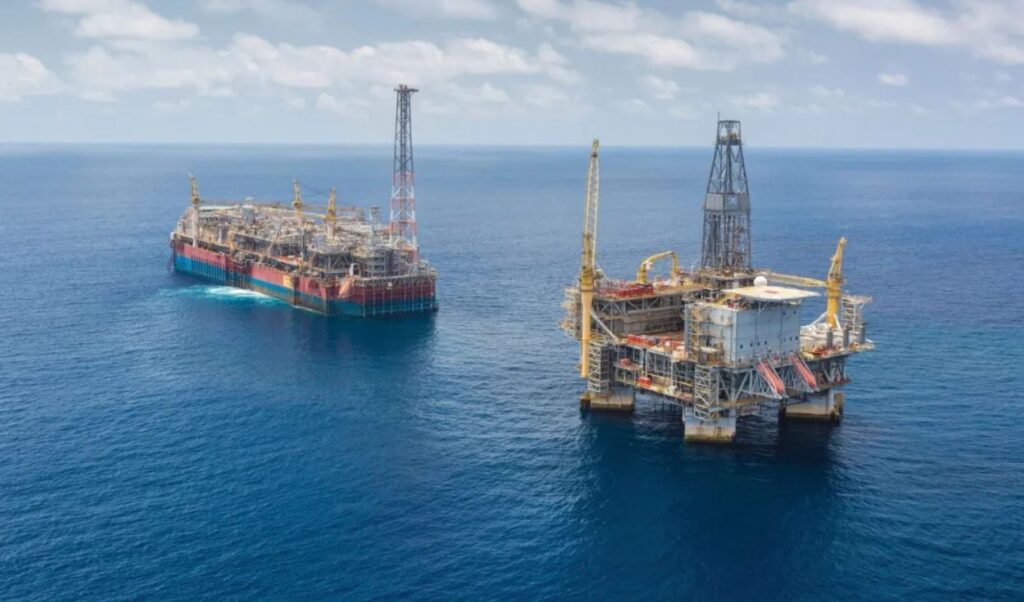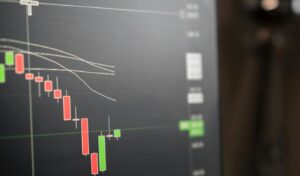The government considers the participation of ExxonMobil in the Block 2 concession in the northwestern Ionian Sea and the decision for exploratory drilling in late 2026 or early 2027 to be of historic significance – the first exploratory drilling in Greece in four decades.
“Kyriakos Mitsotakis’ government is implementing with consistency and confidence its commitment to exploit our country’s submarine wealth and consequently develop the hydrocarbon sector with a long-term horizon,” government sources emphasize, giving the political dimension of the issue, noting that these developments constitute “resounding responses to all those within our borders who rushed to speak of an ‘isolated Greece’ at all levels.”
At the Maximos Mansion, they “read” behind this agreement the further strengthening of cooperation with the United States, the enhancement of Greece’s geopolitical role in the wider region and Europe overall, and more broadly a positive impact on the economy, energy balance, and public revenues.
“Today in Athens, ExxonMobil signed a historic agreement with Greek Energean PLC to restart offshore natural gas drilling in the Ionian Sea, for the first time in more than 40 years. The United States is proud to partner with Greece as we restore common sense and unleash affordable, reliable, and secure energy!” wrote US Energy Secretary Chris Wright on X. Interior Secretary Doug Bergum noted in his own post that under Donald Trump’s leadership, “we ensure our allies will no longer depend on our adversaries for their critical energy needs.”
It is no coincidence that the prime minister chose to deliver a televised message about this agreement and spoke of “a new chapter in Greece’s energy history” and an “act of responsibility and vision.” He noted that the government is implementing its commitment to exploit our national wealth with planning and vision, while he is expected to say more today at 9 AM in his speech at the Zappeion at the Partnership for Transatlantic Energy Cooperation (P-TEC), the international forum being held in Athens. The forum began yesterday with four US Ministers, 25 Energy Ministers from EU member states, and 300 representatives from major companies from Europe, America, and Australia participating.
Wright: “Quite likely Mitsotakis and Trump will meet – The strong statement by the American president toward Greece”
“We are at the beginning of a new era in cooperation and relations between the US and Greece,” said Wright (to SKAI), who supported that “it is quite likely” that Kyriakos Mitsotakis and Donald Trump will meet. As he emphasized, “President Trump made a strong statement toward Greece by sending Ambassador Guilfoyle here. He is promoting investments so that this energy cooperation and cooperation in artificial intelligence can be developed.”
Estimates of 200 billion cubic meters of natural gas in Block 2 – What the historic agreement provides, ExxonMobil’s role
It is worth noting that in a recent statement, Mathios Rigas, CEO of the Energean group, spoke of “very interesting prospects” in Block 2 in the Northwest Ionian and revealed that initial estimates, based on processing and interpretation of three-dimensional seismic surveys, point to 200 billion cubic meters of probable natural gas resources.
With the new agreement, ExxonMobil acquires 60% of the concession in this specific marine plot, Energean retains a 30% stake (from 75% previously), HelleniQ Energy retains a 10% stake (from 25%), while the American energy giant will assume operatorship during the development phase, in case of hydrocarbon deposit discovery.
“America returns and ‘drills’ in the Ionian”
ExxonMobil’s Vice President of Global Exploration, John Ardill, speaking on the sidelines of P-TEC, characterized the project as “a pivotal step with great investment significance.” In a discussion with journalists, he emphasized that the project’s success is based on three factors: expertise, commercial terms, and close cooperation with the Greek government. According to Reuters reporting, Ardill estimated, speaking to the international news agency, that the cost of exploratory drilling for hydrocarbon detection will range between 50 and 100 million dollars, while he “sees” natural gas extraction “in the early 2030s, if all goes well,” as he said – meaning in 6-7 years from today. “America returns and ‘drills’ in the Ionian” was the characteristic phrase used by the new US Ambassador to Athens, Kimberly Guilfoyle.
The East Med
Simultaneously, however, there is a possibility that an almost forgotten project, the East Med, might return with Washington’s support. As Israel’s Energy Minister Eli Cohen told the Jerusalem Post from Athens, after the meeting of energy ministers from Greece, Cyprus, the US, and Israel (3+1 format), “very significant progress has been made regarding the possibility of constructing a natural gas pipeline. This is an idea that was discussed in the past and now returns to the forefront. The Americans are now willing to take on a significant role,” he said. In their joint statement, the four ministers reaffirm their commitment to enhancing energy security and cooperation in the Eastern Mediterranean and emphasize the importance of regional energy interconnection projects, both those already underway and those planned within the India-Middle East-Europe Corridor framework, as well as the need to develop and protect critical energy infrastructure.
They also agreed to utilize the 3+1 format to diversify the region’s energy sources, reduce dependence on malicious actors, and enhance cooperation between countries that share common values and goals. Finally, they confirmed their commitment to closer cooperation on energy infrastructure projects between Europe and Israel and decided to meet again in Washington in the second quarter of 2026 to continue deepening their cooperation within the Eastern Mediterranean Energy Dialogue 3+1 framework.




